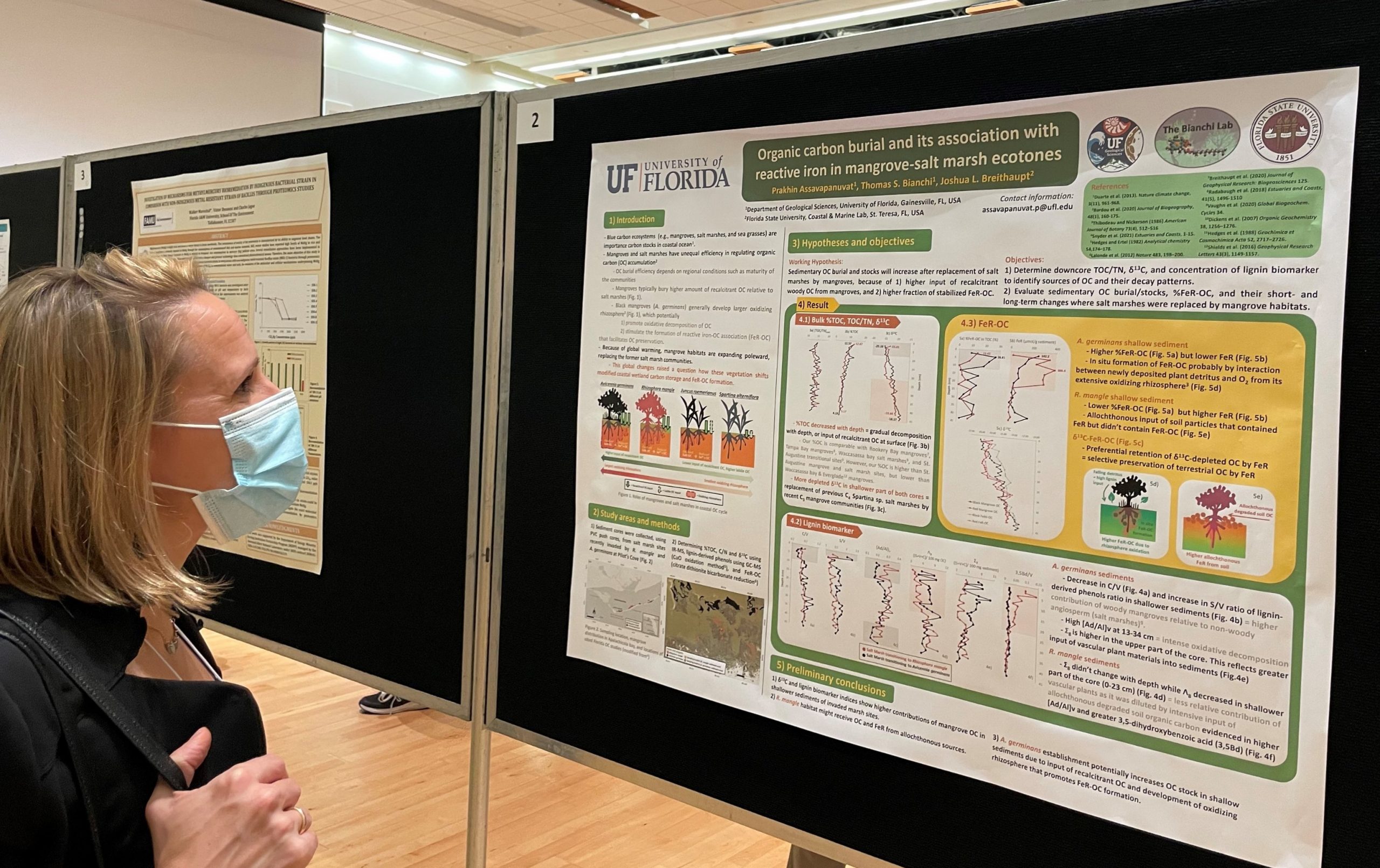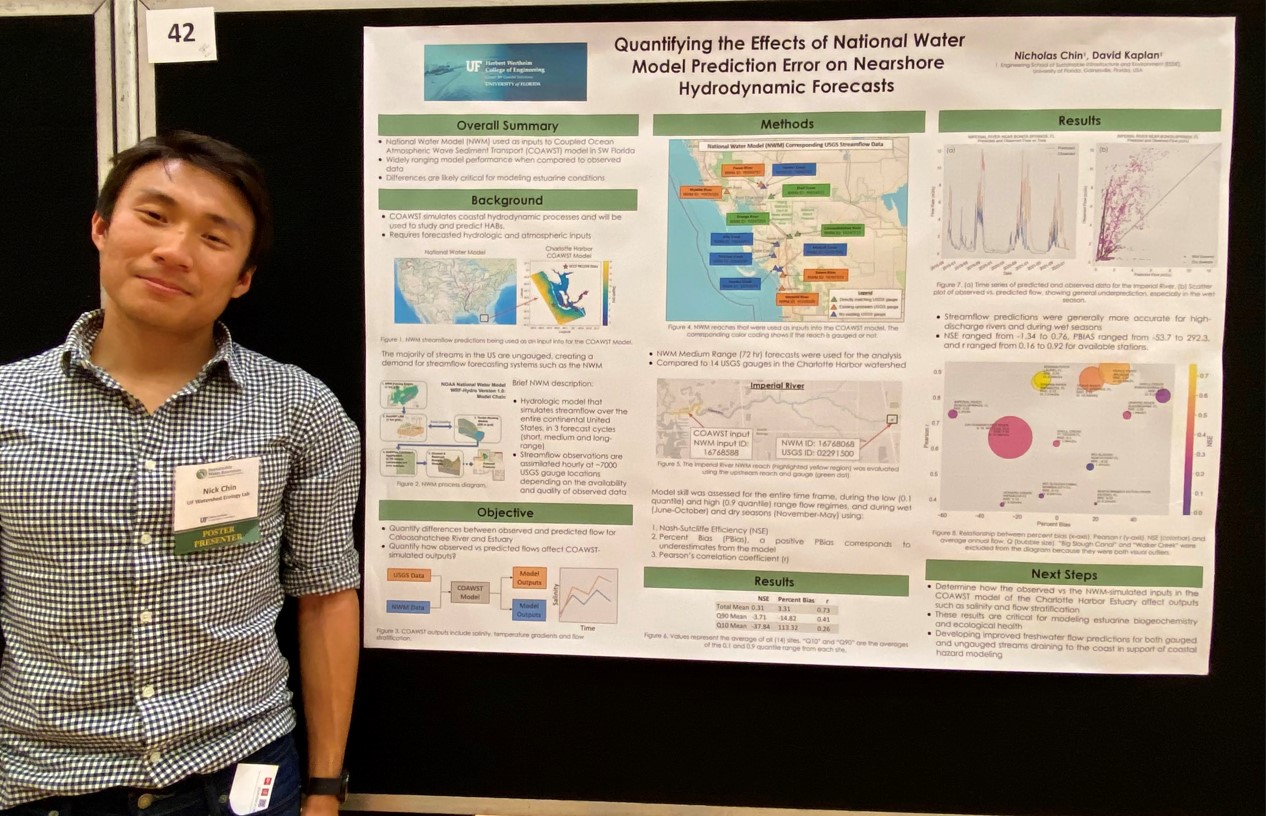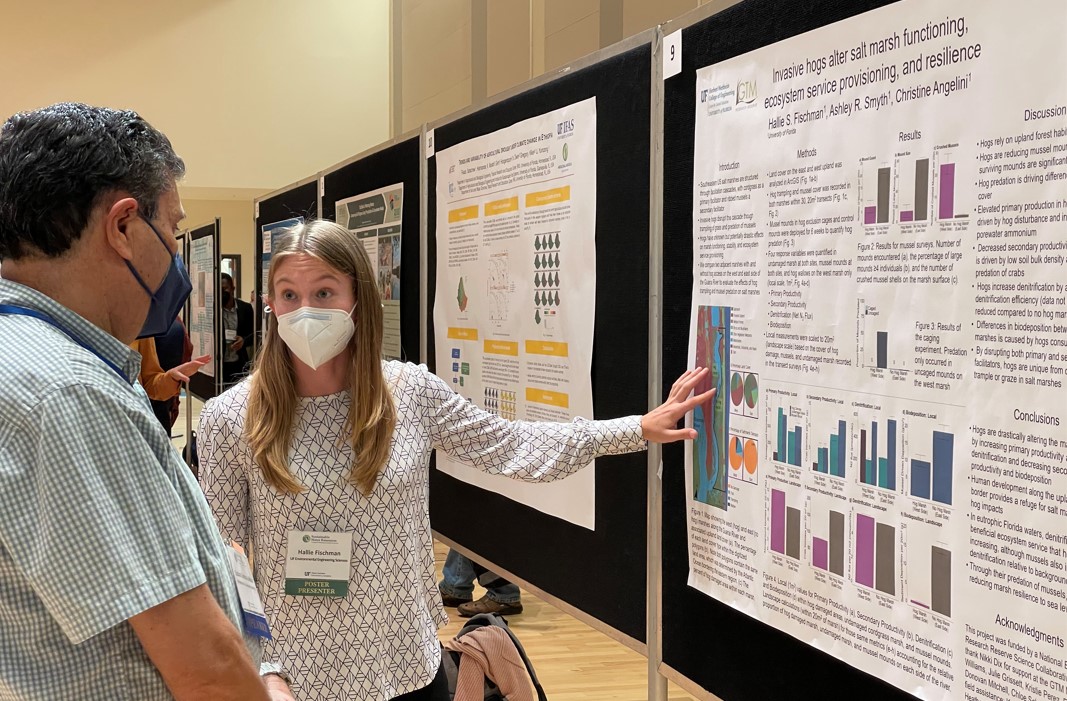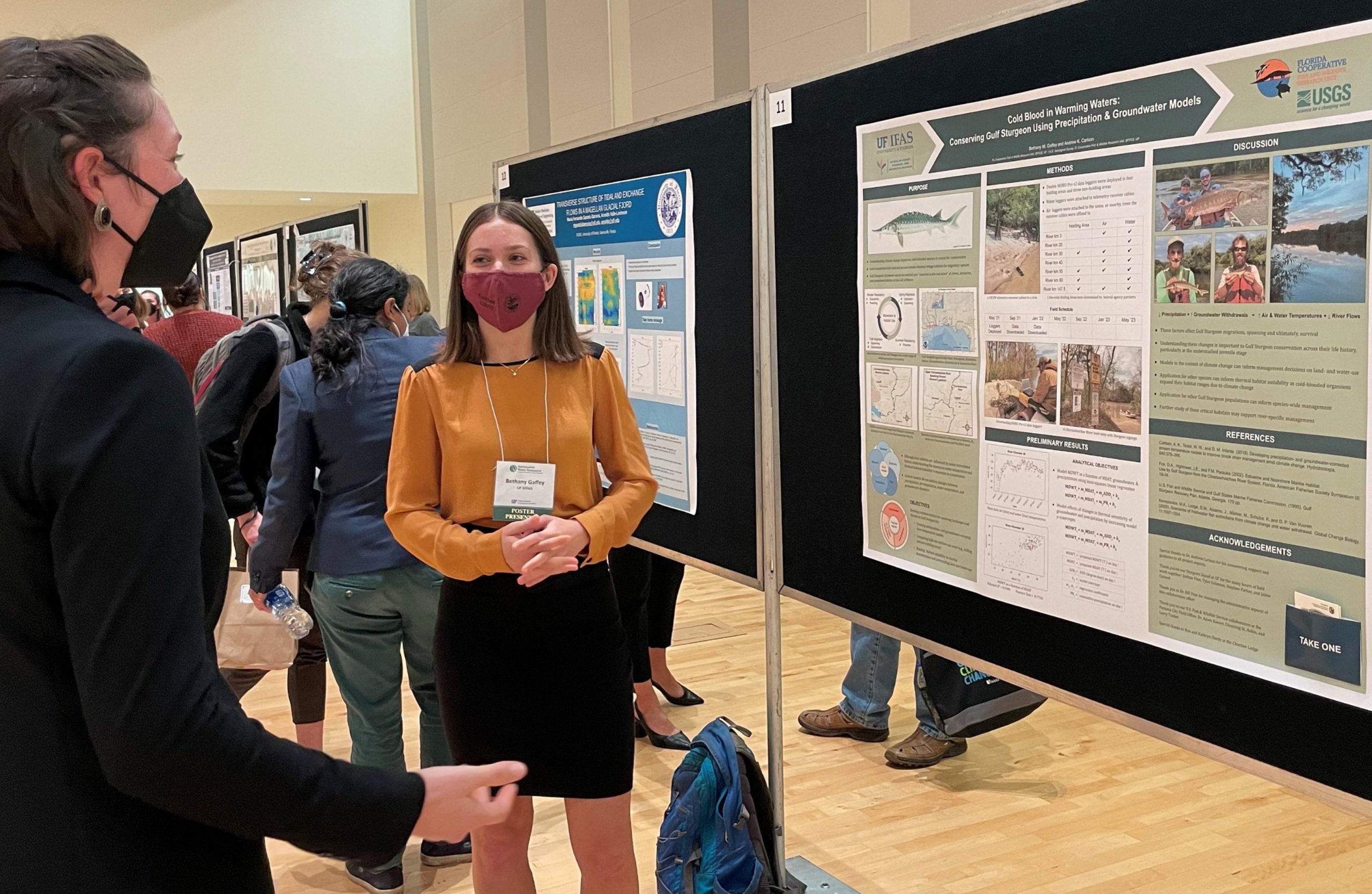
Students of CCS-affiliated faculty presented their research at the 2022 UF Water Institute Symposium Poster Session. Topics included macroalgae decay rates, impact of sea level rise on wave loads, morphodynamics of oyster reefs, crabs as ecosystem engineers, invasive species databases, tidal flows in fjords, sturgeon conservation, invasive hog impact on salt marshes, water modeling of nearshore hydrodynamics, carbon burial in mangrove-salt marsh ecotones, watershed modification effects on coastal ecosystems, and seagrass assemblage influence on sediment carbon stocks.
The Symposium, hosted by the UF Water Institute, was held February 22 – 23 and brought together individuals from a broad range of disciplines and organizations to explore water issues from multiple perspectives. The CCS organized a program of 3 sessions and 2 expert panels that explored what the future of coastal water quality monitoring, modeling, management, and policy should/could look like from a technological, scientific and engineering perspective, as well as through a management and policy lens.
STUDENT POSTERS
Abstracts for each poster can be found in the Symposium Book of Abstracts.
|
Scott Alford School of Forest, Fisheries, & Geomatics Sciences Watershed Modification Effects on Coastal Ecosystems: A Synthesis from Key Gulf of Mexico Estuaries
|
 |
|
Prakhin Assavapanuvat Geological Sciences Organic Carbon Burial in Mangrove-Salt Marsh Ecotones of Apalachicola Bay: The Role of Reactive Iron |
 |
|
Alexandra Bijak Department of Soil and Water Sciences |
Seagrass Species Identity and Historical Cover Influence Sediment Organic Carbon Stocks |
|
Nicholas Chin Engineering School of Sustainable Infrastructure an Environment Quantifying the Effects of National Water Model Prediction Error on Nearshore Hydrodynamic Forecasts |
 |
|
Hallie Fischman Engineering School of Sustainable Infrastructure an Environment Invasive Hogs Alter Salt Marsh Functioning, Ecosystem Service Provisioning, and Resilience |
 |
|
Bethany Gaffey School of Forest, Fisheries, & Geomatics Sciences Cold Blood in Warming Waters: Conserving Gulf Sturgeon Using Precipitation and Groundwater Models |
 |
|
Maria Fernanda Gastelu-Barcena Engineering School of Sustainable Infrastructure an Environment Transverse Structure of Tidal and Exchange Flows in a Magellan Glacial Fjord |
 |
|
Zoey Hendrickson School of Forest, Fisheries, & Geomatics Sciences Invasive Species Pathways: Using the NAS Database to Identify Case Studies for Gap Analysis |
 |
|
Collin Ortals Engineering School of Sustainable Infrastructure an Environment Crab Consumers Transform Vegetation-Sediment-Flow-Morphology Feedbacks in Southeastern US Salt Marsh |
 |
|
Daniele Pinton Engineering School of Sustainable Infrastructure an Environment Morphodynamics of Oyster Reefs in Tidal Flats under Various Sea-Level Rise and Wave Scenarios |
 |
|
Edwin Rajeev Engineering School of Sustainable Infrastructure an Environment Impact of Sea Level Rise on Flooding and Wave Load: The Case of the Glass Window Bridge, Bahamas |
 |
|
Jamila Roth School of Natural Resources and Environment
|
Does More Variety Mean Higher Stability? Exploring How Seagrass Species Diversity Impacts Resilience |
|
Patrick Saldaña Engineering School of Sustainable Infrastructure an Environment Macroalgae Decay Rates and Diversity Effects on Sediment Biogeochemistry in a Florida Estuary |
 |